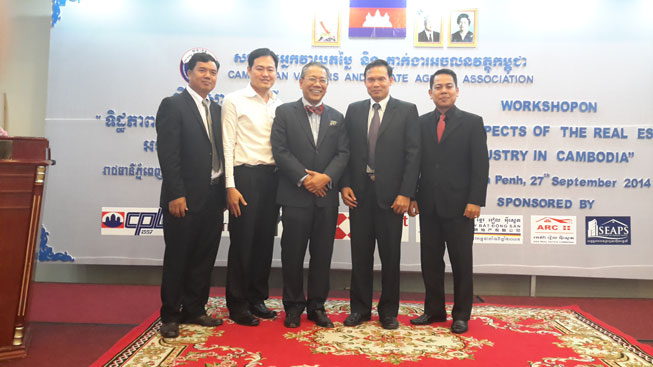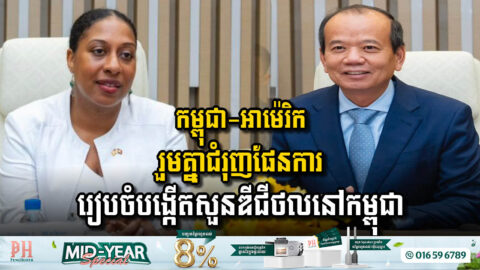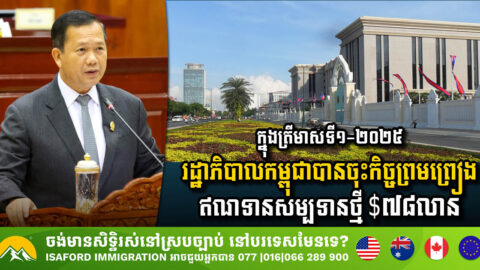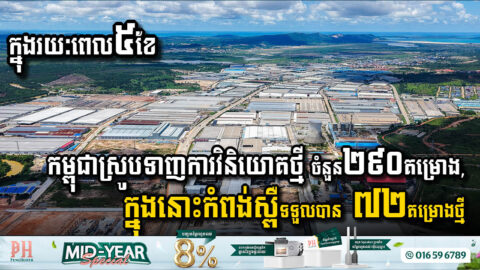Cambodia’s Banana Exports Flourish as China Remains Top Market
In a significant boost to its agricultural sector, Cambodia exported a remarkable 260,000 tons of fresh bananas in 2024, with a staggering 95% of this yield headed for the Chinese market. This surge in banana exports highlights Cambodia’s growing influence in the international agricultural arena. As of now, Cambodia boasts 21,000 hectares dedicated to yellow […]
Joint Efforts Between Cambodia and the US to Advance Digital Park Development
In a significant step towards enhancing Cambodia’s digital landscape, the Ministry of Posts and Telecommunications, in collaboration with the US Embassy, has held productive discussions aimed at promoting the development of a digital park in the country. The meeting, featuring HE Minister Chea Vandet and Ms. Bridgette L. Walker, Chargé d’Affaires of the US Embassy, […]
Cambodia and Tajikistan Strengthen Ties in Energy, Agriculture, and Education
In a significant move to enhance bilateral relations, Cambodia and Tajikistan have pledged to jointly expand their cooperation in key sectors, including energy, agriculture, and education. This commitment was formalized during a meeting between Cambodian Prime Minister Hun Sen and Tajik President Emomali Rahmon on June 9, 2025. During their discussions, both leaders emphasized the […]
Cambodia Secures USD 78.81 Million in New Concessional Loans to Boost Economic Growth
In the first quarter of 2025, the Government of Cambodia successfully signed new concessional loans amounting to USD 78.81 million (equivalent to SDR 59.11 million). This funding represents 3% of the total borrowing ceiling allowed under national law, which stands at SDR 2,000 million. According to a report from the Ministry of Economy and Finance […]
Vietnamese Investors Show Strong Interest in Cambodia: 150 Companies Ready to Invest
In a significant move to strengthen bilateral economic ties, approximately 150 Vietnamese companies have expressed keen interest in investing in Cambodia. This development was highlighted during a meeting on June 10, 2025, between H.E. Nguyen Minh Vu, the Vietnamese Ambassador to Cambodia, and H.E. Binh Trachhai, the Minister of Planning. Ambassador Nguyen noted that the […]
Cambodia Sees Surge in Investment Activity in Early 2025
In a promising start to 2025, Cambodia has attracted 290 new investment projects, totaling over USD 4 billion in investment capital during the first five months, according to the latest report from the Council for the Development of Cambodia (CDC). Remarkably, this marks a significant increase from the same period last year, with 137 additional […]



 ខ្មែរ
ខ្មែរ







